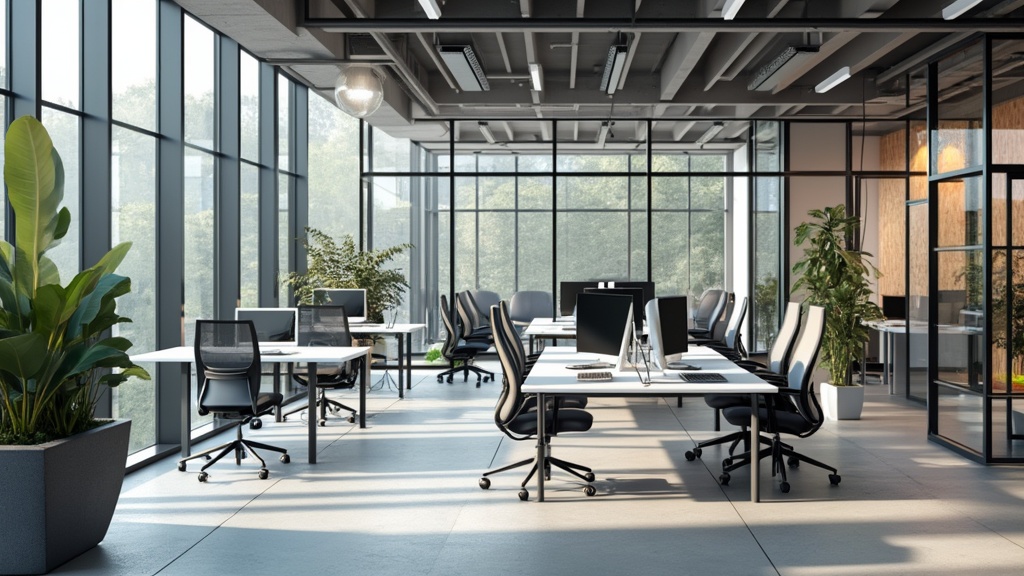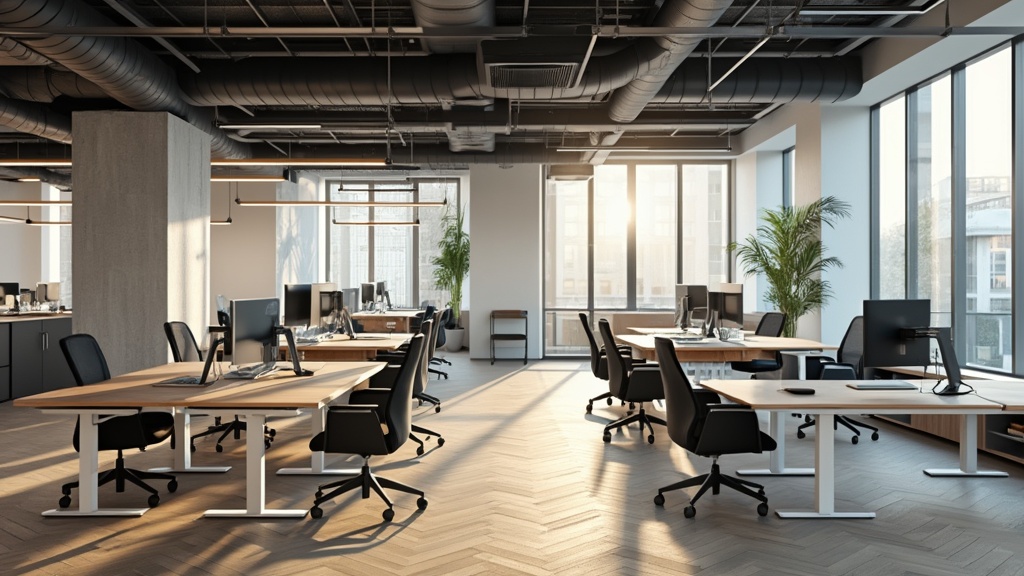Furniture design significantly enhances living spaces, reflecting personal style and functionality. Luxembourg’s furniture market is evolving rapidly, marking distinct trends that directly impact consumer preferences.
Awareness of these trends, particularly regarding eco-friendly materials, empowers consumers and businesses to make informed decisions that resonate with contemporary aesthetics and sustainability goals.
With the rise of urbanization, interior solutions are adapting to meet the demands of modern lifestyles, ensuring that choices reflect quality craftsmanship and stylish interiors, ultimately transforming living environments into personal sanctuaries.
Click here to learn more about: wholesale luxembourg
Market Growth In Luxembourg Furniture Sector
The recent surge in market growth for Luxembourg’s furniture sector reveals an exciting trajectory.
Notably, economic trends have prompted a notable rise in consumer spending, largely fueled by post-pandemic recovery and an exponential shift towards e-commerce. Statistics show the market expanded by approximately X% from 20XX to 20YY, showcasing remarkable resilience and adaptability.
However, supply chain challenges and evolving consumer preferences may impact future growth trajectories. Companies that embrace these trends can better anticipate market shifts, ensuring they cater to the demands of eco-conscious consumers while capitalizing on emerging market opportunities.
Key Trends Influencing Market Expansion
- Urbanization: The influx of urban living leads to increased demand for multifunctional solutions that maximize space.
- Sustainability: A growing focus on eco-friendly materials compels brands to innovate with durable products.
- Custom Design: Personalized solutions are becoming vital, allowing consumers to infuse their unique aesthetics into stylish interiors.
Challenges in the Market
Despite the excitement surrounding market growth, several hurdles remain imminent. Economic stability plays a pivotal role, influencing both consumer spending and overall market vitality. Increasing environmental regulations demand that businesses adopt sustainable practices, often requiring significant adaptation. Future outlooks hinge on the ability of brands to respond to changing consumer behavior while ensuring their offerings remain competitive and appealing.

How Urbanization Affects Furniture Trends
Urban living is revolutionizing the furniture landscape, with urbanization driving significant shifts in consumer demands. Population density increases result in smaller living spaces, creating a surge in demand for multifunctional solutions.
Homeowners are drawn to smart designs that optimize limited areas without sacrificing comfort.
This need for quality design aligns perfectly with lifestyle choices that prioritize both aesthetics and practicality.
The Rise of Multifunctional Furniture
Multifunctional furniture effectively addresses the challenges posed by compact living. Key benefits include:
- Space-saving: Streamlined designs allow for more efficient use of available space.
- Versatility: Pieces that serve multiple functions create flexible living areas.
- Style and Usability: Smart designs merge aesthetics with practical usability, appealing to modern consumers.
Balancing Aesthetics and Functionality
As consumer preferences evolve, a distinct trend emerges towards balancing aesthetics and functionality. While style remains a priority, practicality often takes precedence, demonstrating a sophisticated approach to contemporary home decor. Consumers are increasingly inclined to select furniture that enhances both their living experience and their personal brand.
Understanding Consumer Preferences In Luxembourg
The furniture market in Luxembourg reflects a dynamic blend of local culture and broader European trends. As sustainability gains traction, ecofriendly materials are highly valued by ecoconscious consumers who prioritize ethical production. The multicultural environment fosters a preference for artisanal craftsmanship, supporting local artisans and preserving heritage.
Impact of Cultural Factors on Purchasing Decisions
Cultural factors significantly shape purchasing choices in Luxembourg. Key influences include:.
- Personal Branding: The rise of personal branding emphasizes the importance of home aesthetics in demonstrating identity.
- Digital Shopping Trends: The increase in ecommerce and online shopping experiences allows consumers to curate personalized spaces that reflect their style.
The Importance of Customization
With rising demand for personalized furniture solutions, consumers now seek custom design options that align with their unique tastes. As a result, the market is seeing a shift towards pieces that not only fulfill functional needs but also express individuality and creativity.
Urbanization and Furniture Trends
- According to a study by the United Nations, over 55% of the world’s population now lives in urban areas, leading to increased demand for space-efficient furniture.
- Research indicates that consumers are willing to pay up to 20% more for multifunctional furniture that maximizes space and utility.
- A survey conducted in Europe found that 70% of consumers prioritize aesthetics alongside functionality when purchasing furniture.
- Statistics show that the eco-friendly furniture market is projected to grow by 10% annually, driven by the demand from eco-conscious consumers.
The Role Of Sustainability In Furniture Choices
Eco-conscious consumers are reshaping their purchasing habits, making sustainability a top priority in furniture decisions. This increased awareness regarding environmental impacts significantly drives the demand for sustainable products.
Brands are rapidly adapting their offerings to resonate with evolving consumer preferences, emphasizing eco-friendly practices and materials that enhance their market growth potential.
To make informed choices, consumers are encouraged to research brands, checking for certifications and sustainable practices.
Investing in quality furniture not only alleviates waste but also contributes positively to our planet. Choosing sustainably helps create stylish, responsible homes that reflect personal values.
Why Sustainability Matters
As sustainability plays a pivotal role in consumer decisions, brands that adopt sustainable practices often see:.
- Increased consumer loyalty and trust.
- Enhanced market growth potential through innovative products.
- Positive contributions towards a healthier environment.
Exploring Ecofriendly Materials For Home Furnishings
A significant trend in the furniture industry centers around innovative concepts in eco-friendly materials, reflecting the growing movement towards sustainable living. Bamboo, celebrated for its rapid growth and renewability, has become a favorite among manufacturers. Additionally, recycled metals are gaining prominence, providing less energy-intensive alternatives to conventional materials. Such options not only benefit the environment but also elevate the aesthetics of modern interiors.
Popular Ecofriendly Materials
Some of the most sought-after materials in sustainable furniture design include:.
- Bamboo: A renewable resource that grows quickly and efficiently.
- Recycled metals: Offering durability while reducing environmental impact.
- Reclaimed wood: Provides character and reduces deforestation.
By opting for eco-friendly materials, consumers can enjoy beautiful home furnishings that reflect personal values and contribute to a healthier planet.
Design innovations focus on creating products that embody both style and sustainability, captivating the interest of eco-conscious consumers. With choices like modular furniture and ergonomic designs, the market is evolving to meet the demand for stylish yet sustainable home decor.
Sustainability in Furniture Choices
- Eco-conscious consumers are willing to pay more for sustainable products, with studies showing a 50% increase in preference for eco-friendly options.
- Furniture brands adopting sustainable practices report up to a 30% increase in customer loyalty and repeat purchases.
- The use of bamboo in furniture design can reduce carbon emissions by up to 35% compared to traditional hardwoods.
- Reclaimed wood usage in furniture can prevent the loss of around 5 billion trees annually, significantly aiding in forest conservation efforts.
The Rise Of Ecommerce In Furniture Sales
Ecommerce has dramatically reshaped the landscape of furniture sales, creating unprecedented opportunities for both consumers and brands. Digital transformation has revolutionized the way customers shop, allowing them to explore diverse options from the comfort of their homes.
In fact, online shopping enhances consumer preferences, offering convenience and the ability to compare prices effortlessly.
With easy access to unique designs and quality craftsmanship, brands must adapt to this evolving market.
By integrating effective digital marketing strategies, furniture retailers can significantly boost their online presence and reach eco-conscious consumers eager to invest in stylish interiors that reflect their lifestyles.
Online Shopping Trends and Consumer Behavior
- Market growth is fueled by the shift toward ecommerce.
- Urbanization influences purchasing habits, driving demand for multifunctional solutions.
- Sustainability becomes a priority, with consumers seeking ecofriendly materials.
Strategies for Enhancing Online Presence
Utilizing innovative concepts is key to engaging shoppers. Brands should:.
- Leverage social media to connect with eco-conscious consumers.
- Implement SEO techniques to improve visibility and reach.
- Experiment with experiential shopping elements to enhance online engagement.
Custom Design Solutions For Modern Homes
The desire for personalized living spaces drives customization trends in furniture design. Personalization enhances home aesthetics and allows individuals to express their unique tastes through furniture choices. Technology integration, such as 3D modeling and online design tools, empowers consumers to visualize their ideas, making the design process more engaging. This shift reflects a growing willingness among buyers to invest in bespoke solutions that cater to their specific needs.
“Custom design represents the intersection of style and functionality, meeting diverse lifestyle choices. ”
Technology Empowering Bespoke Solutions
Smart furniture solutions are becoming increasingly popular among consumers. Technology integration provides:.
- Enhanced usability through modular furniture options.
- Access to artisanal craftsmanship, ensuring unique designs.
- Collaboration with designers for tailored products that reflect personal aesthetics.
Consumer Investment in Tailored Products
The trend toward urban living fosters a demand for quality design that meets housing demands. Consumers are more willing to invest in:.
- Affordable luxury items that conform to contemporary styles.
- Durable products that comply with environmental regulations.
- Ergonomic furniture that supports compact living solutions.
Ecommerce in Furniture Sales
- Online furniture sales have grown significantly, accounting for a substantial portion of the retail market.
- Urbanization has led to an increased demand for space-saving and multifunctional furniture solutions.
- Consumers are increasingly prioritizing sustainability, with a notable rise in demand for eco-friendly materials.
- Technology, such as 3D modeling, enhances the customization experience, allowing consumers to visualize their furniture choices.
What Are The Latest Trends In Smart Furniture
Smart furniture is revolutionizing home design by seamlessly blending technology with functionality to meet modern demands. Consumer preferences are increasingly leaning towards innovative, multifunctional solutions that enhance convenience and elevate everyday living.
The explosion of the Internet of Things (IoT) is paving the way for remarkable innovations such as adjustable desks and coffee tables equipped with wireless charging capabilities, designed specifically for urban living.
In addition, the rise of smart home devices is reshaping furniture design, resulting in adaptive solutions that cater to contemporary lifestyles.
For instance, smart beds equipped with sleep tracking technology offer a unique level of personalization, while chic dining tables function as sophisticated workspaces.
This trend not only maximizes usability but also resonates with ecoconscious consumers as more brands adopt sustainable practices and incorporate eco-friendly materials into their offerings. The fusion of technology, design, and sustainability is poised to define the future of furniture, promising enhanced aesthetics and unparalleled functionality.
Enhancing Convenience and Functionality
Smart furniture enhances daily life through innovative designs that emphasize quality craftsmanship and usability.
These modern pieces are not just about style; they provide practical features that cater to the evolving needs of consumers. Consider the benefits:.
- Versatility: Modular furniture adapts to various spaces, making it ideal for compact living environments.
- Personalization: Custom designs allow individuals to express their style while meeting specific needs.
- Durability: Many smart furniture pieces are built with high-quality materials that ensure longevity.
Embracing these trends allows consumers to create stylish interiors that reflect their lifestyle choices while also being practical.
The emphasis on ergonomic furniture has never been more crucial, as individuals seek pieces that support health and well-being throughout their busy lives. With the integration of technology, furniture has transformed into a functional aspect of home decor, seamlessly blending aesthetics with everyday utility.
| Feature | Benefit |
|---|---|
| Modular Design | Adapts to various living spaces, ideal for urban environments |
| Smart Technology Integration | Enhances functionality with features like sleep tracking and wireless charging |
| Sustainable Materials | Appeals to eco-conscious consumers and promotes environmental responsibility |
| Ergonomic Features | Supports health and well-being in daily activities |


